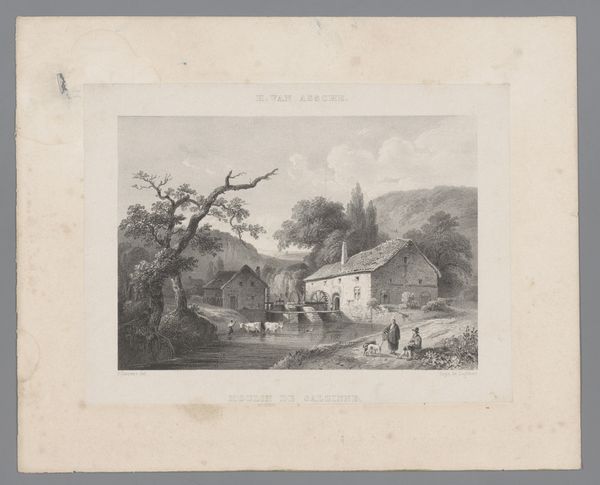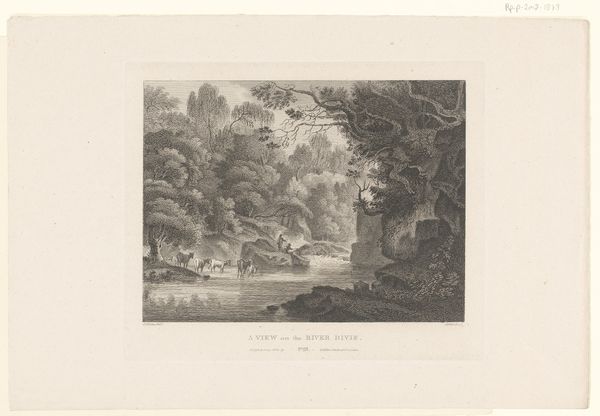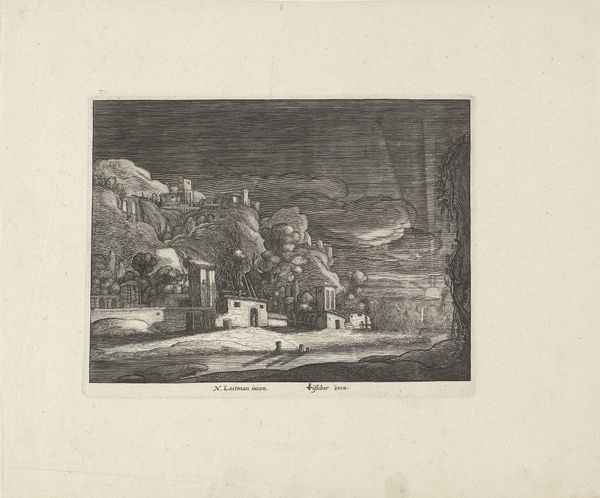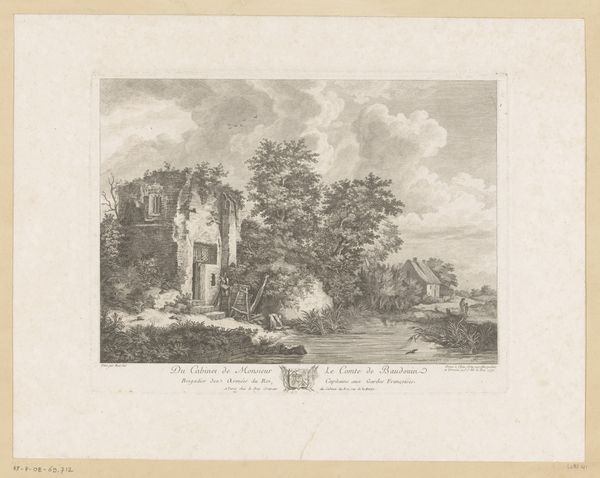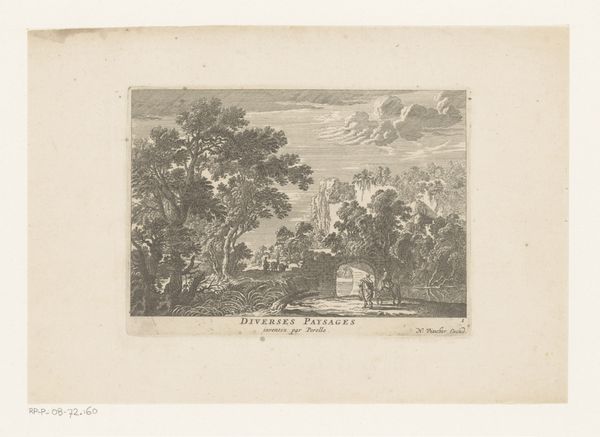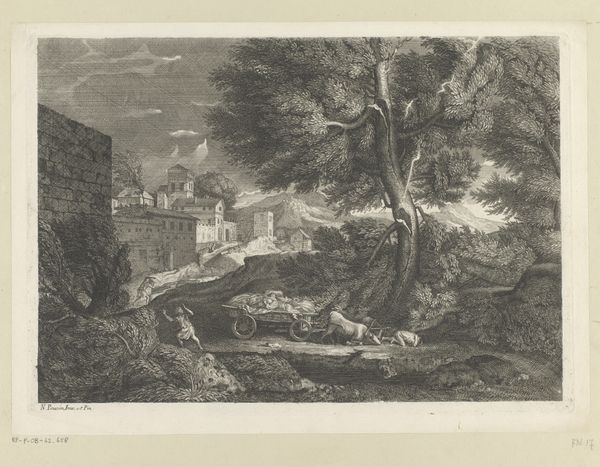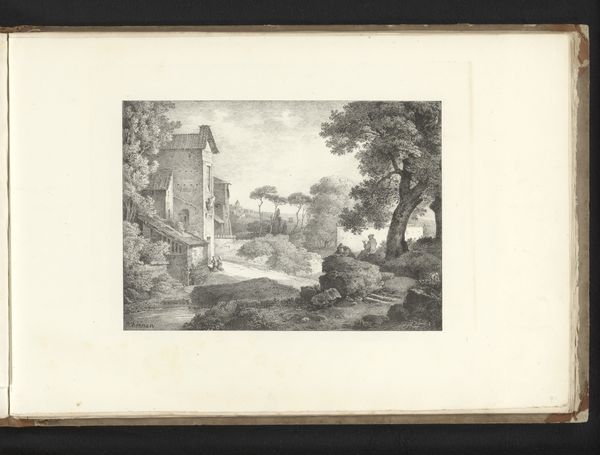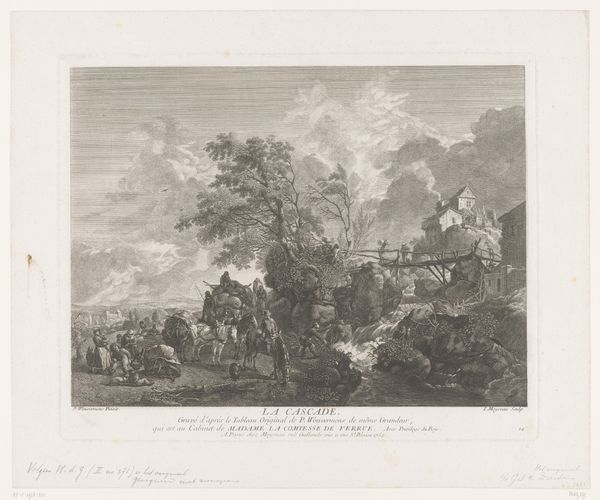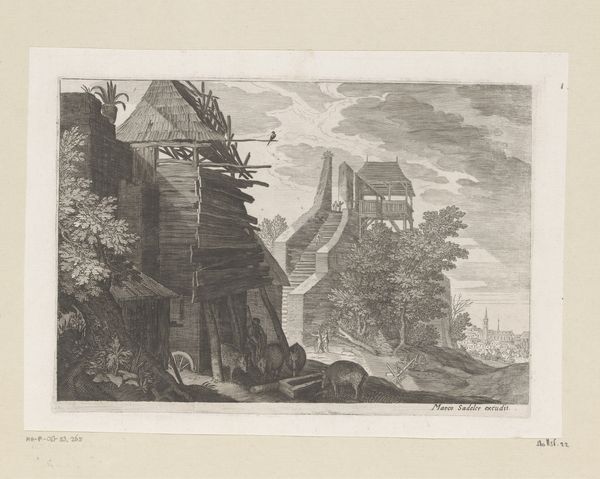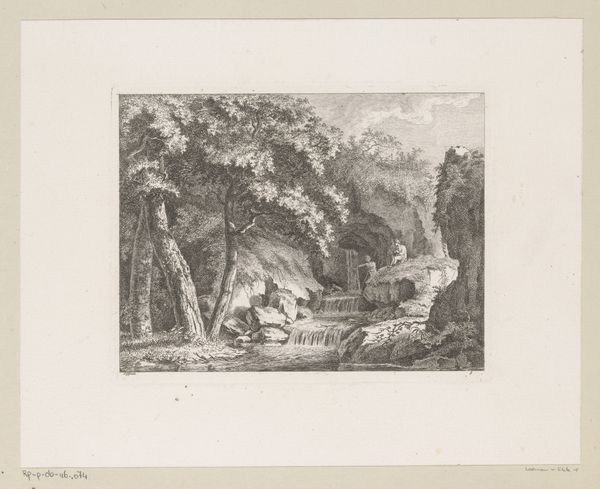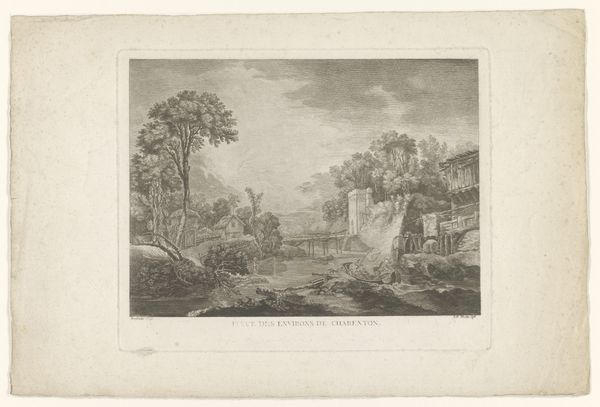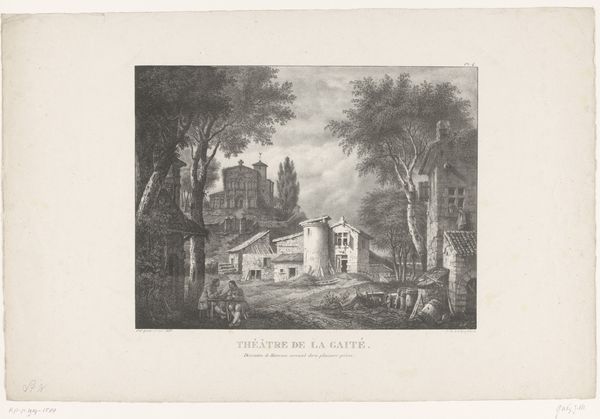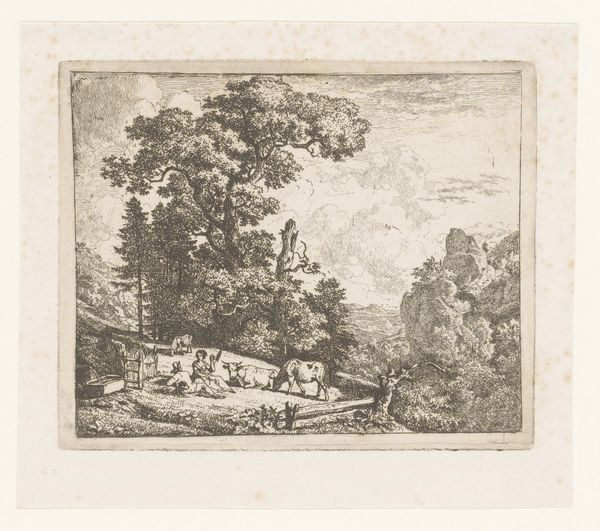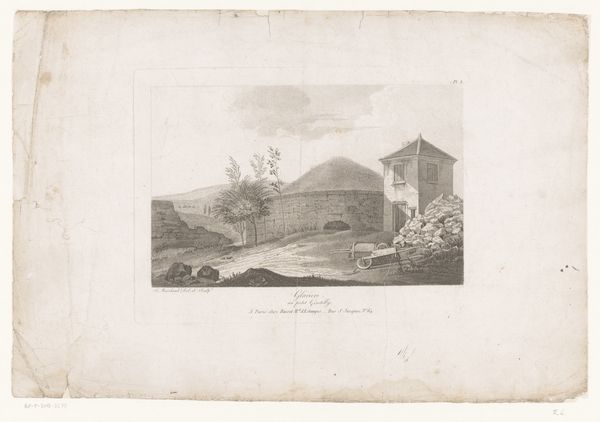
print, engraving
#
photo of handprinted image
# print
#
old engraving style
#
landscape
#
romanticism
#
watercolour illustration
#
genre-painting
#
engraving
Dimensions: height 310 mm, width 423 mm
Copyright: Rijks Museum: Open Domain
This print, Landschap met watermolen bij Salzinnes, was made by the van Lier brothers using the technique of steel engraving. Look closely, and you can see the fineness of line that this method permits. The image almost seems photographic, though it's entirely handmade. Steel engraving was developed in the early 19th century as a way to create more durable printing plates. Copper, the previous standard, wore down relatively quickly. Steel allowed for much larger editions. This was critical, given the rise of illustrated books and magazines, which themselves were of course symptomatic of an expanding industrial economy. Steel engraving had a crisp, precise character, entirely in keeping with the machine age. So, while this print depicts an idyllic rural scene – a mill, some resting figures, a gently flowing stream – it's important to remember that the image itself was brought to you by the forces of industrial production. The van Lier brothers were not just artists, but also participants in a rapidly changing world of labor and consumption.
Comments
No comments
Be the first to comment and join the conversation on the ultimate creative platform.
